I wanted to make a method that determine if the application is started for the very first time, no matter the current version of the application. People suggest that we should use SharedPreferences as seen from this qustion. Below is the function that determine if application is started for the very first time.
companion object {
const val APP_LAUNCH_FIRST_TIME: Int = 0 // first start ever
const val APP_LAUNCH_FIRST_TIME_VERSION: Int = 1 // first start in this version (when app is updated)
const val APP_LAUNCH_NORMAL: Int = 2 // normal app start
/**
* Method that checks if the application is started for the very first time, or for the first time
* of the updated version, or just normal start.
*/
fun checkForFirstAppStart(context: Context): Int {
val sharedPreferencesVersionTag = "last_app_version"
val sharedPreferences = androidx.preference.PreferenceManager.getDefaultSharedPreferences(context)
var appStart = APP_LAUNCH_NORMAL
try {
val packageInfo = context.packageManager.getPackageInfo(context.packageName, 0)
val lastVersionCode = sharedPreferences.getLong(sharedPreferencesVersionTag, -1L)
val currentVersionCode = PackageInfoCompat.getLongVersionCode(packageInfo)
appStart = when {
lastVersionCode == -1L -> APP_LAUNCH_FIRST_TIME
lastVersionCode < currentVersionCode -> APP_LAUNCH_FIRST_TIME_VERSION
lastVersionCode > currentVersionCode -> APP_LAUNCH_NORMAL
else -> APP_LAUNCH_NORMAL
}
// Update version in preferences
sharedPreferences.edit().putLong(sharedPreferencesVersionTag, currentVersionCode).commit()
} catch (e: PackageManager.NameNotFoundException) {
// Unable to determine current app version from package manager. Defensively assuming normal app start
}
return appStart
}
}
Now in my MainActivity I make the check in this way, but strangely enough I always end up inside the if statement, although appLaunch is different from MainActivityHelper.APP_LAUNCH_FIRST_TIME
val appLaunch = MainActivityHelper.checkForFirstAppStart(this)
if (appLaunch == MainActivityHelper.APP_LAUNCH_FIRST_TIME) {
val c = 299_792_458L
}
Here we see that appLaunch is 2

Here we see that MainActivityHelper.APP_LAUNCH_FIRST_TIME is 0

I am in the main thread I check using Thread.currentThread(), and when I add watches in the debugger (appLaunch == MainActivityHelper.APP_LAUNCH_FIRST_TIME) I get false.
So I suggest that there is some delay, and by the time the if check is made the result is changed?